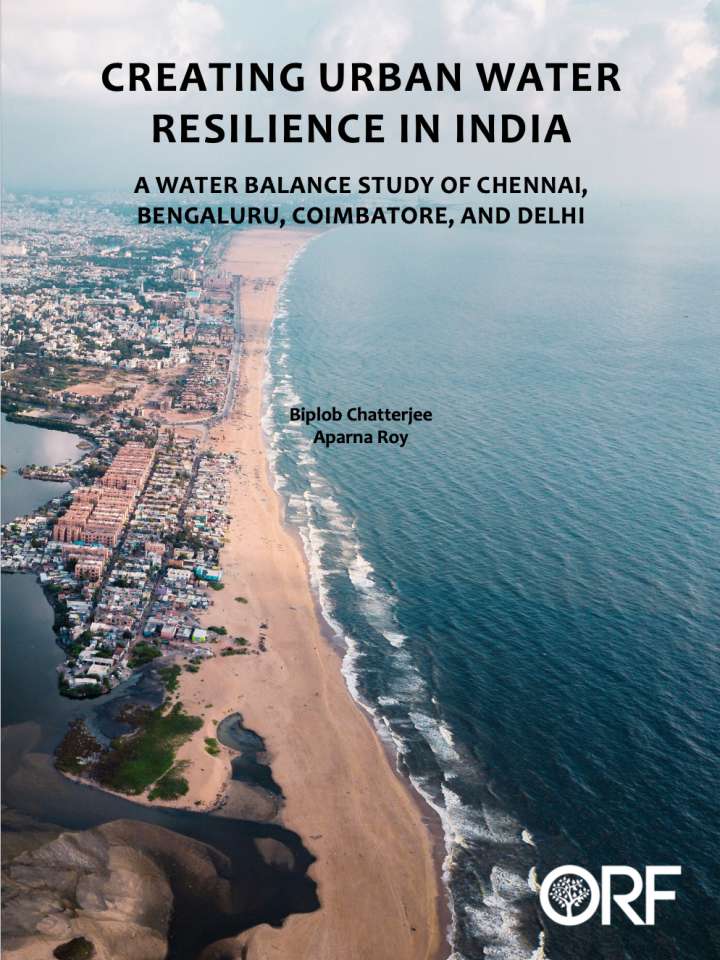Creating urban water resilience in India: A water balance study of Chennai, Bengaluru, Coimbatore, and Delhi
This study attempts to contribute to the mission’s objective by analysing the gaps and constraints in the current urban water balance and the city water budgeting process. The 2021-22 Union Budget announced the launch of the Jal Jeevan Mission (Urban), an ambitious project that aims to provide potable tap water supply to 2.86 crore households by 2024. Even as the programme takes shape, much of urban India continues to face severe water stress conditions due to rapid urbanisation, negligible augmentation of raw water sources, archaic water infrastructure and poor water governance. The study comprehensively analyses the water supply and demand scenarios in four water-stressed cities—Chennai, Coimbatore, Bengaluru and Delhi.
The paper concludes with eight priority areas for water governance for urban water security in India. Some of the key points include:
- Science-based mapping and analysis of all surface and groundwater resources;
- Prioritising raw surface water and groundwater source security;
- Identifying potable and non-potable water demands, based on utilisation data and census data projections;
- Phasing out old water distribution infrastructure and replacing it with modern, digitally-connected water infrastructure;
- Bringing most urban water supply under revenue water.
Explore further
